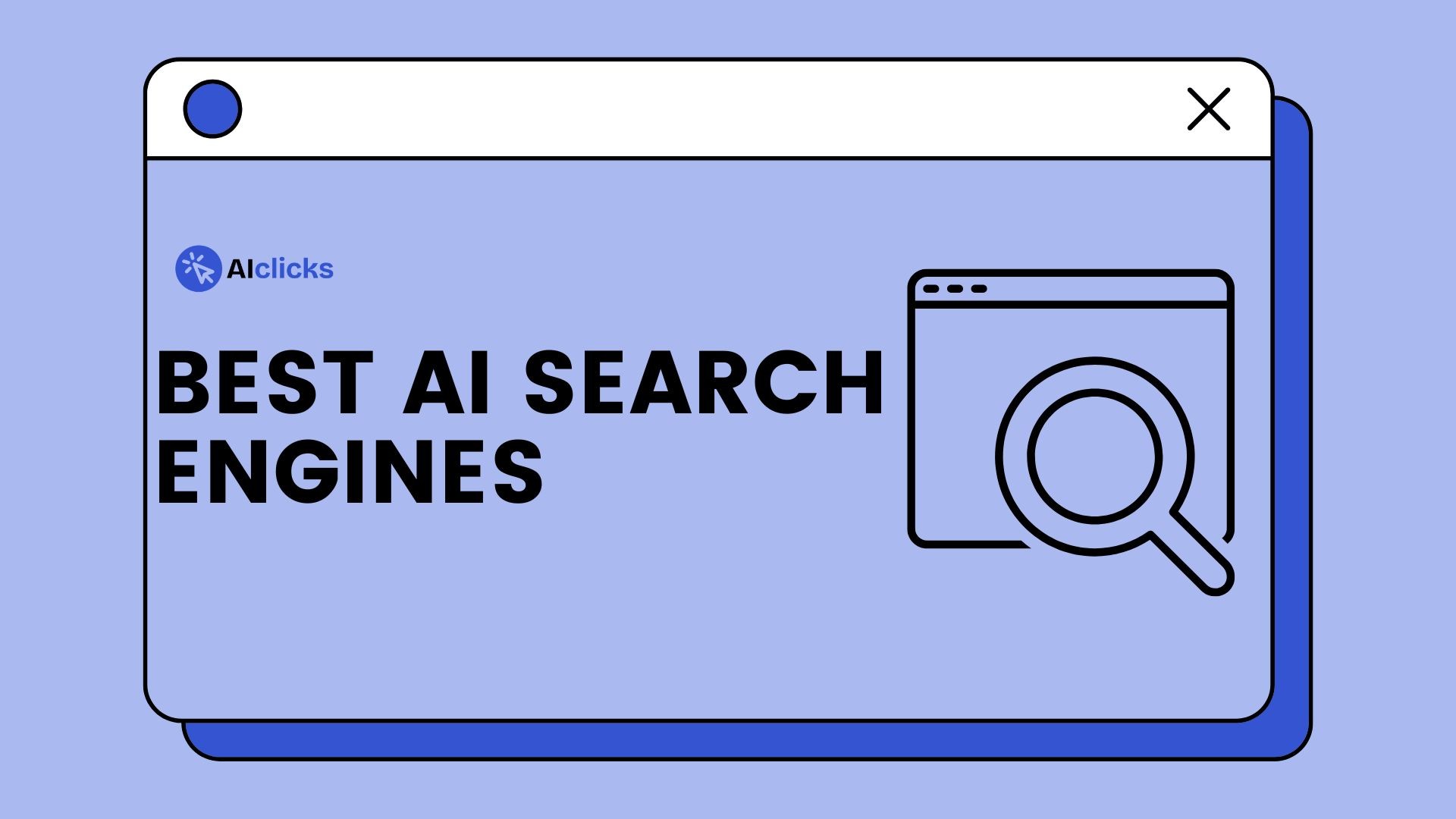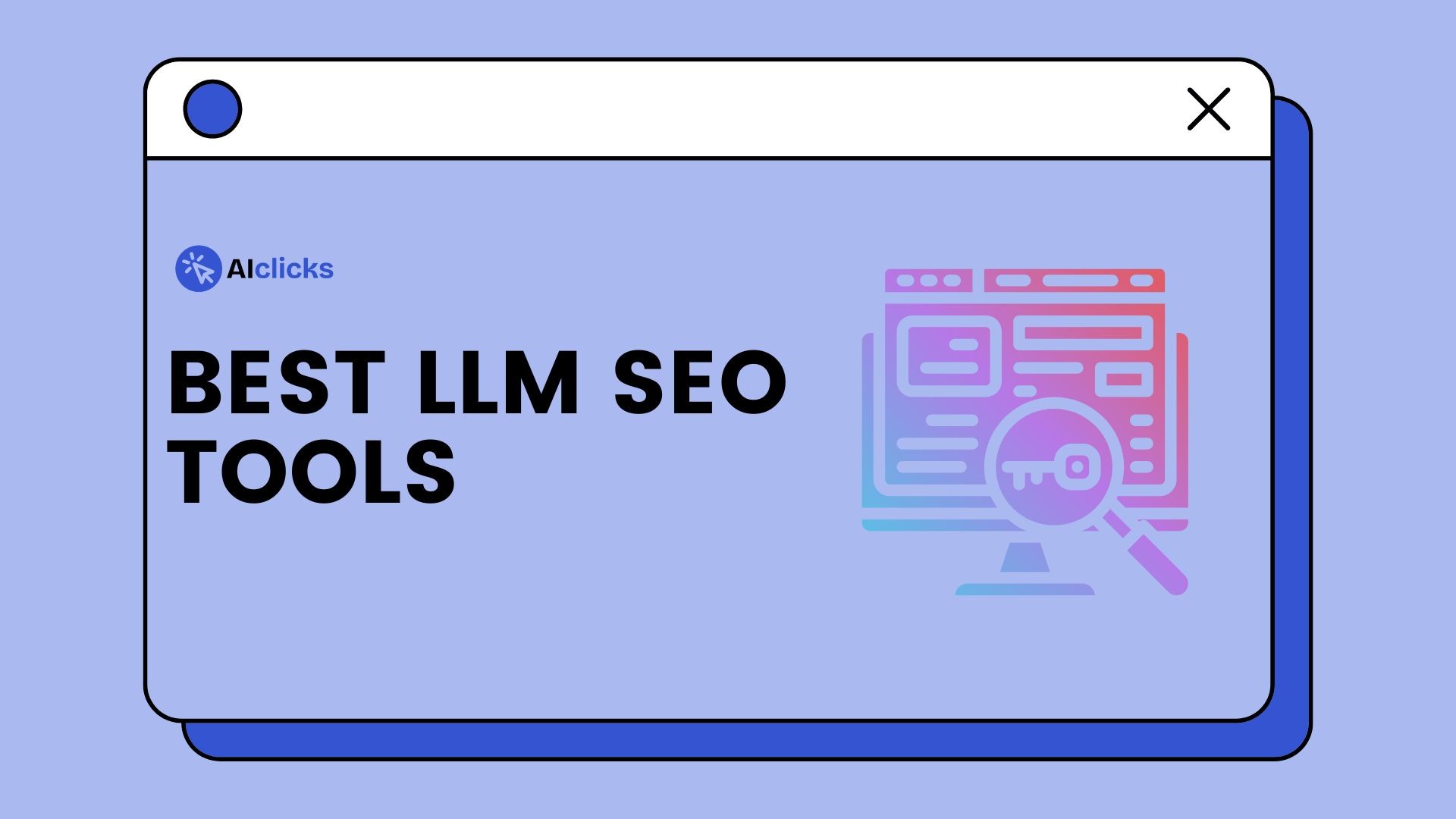
Written by:
Rokas Stankevicius
Founder @ aiclicks.io
Reviewed by:
Matas Kibildis
Head of Growth @ aiclicks.io
When I started building AIclicks, I saw something big shifting in how people discover products and services online. Sure, Google is still powerful, but users now ask tools like ChatGPT for recommendations, advice, and solutions. In some cases, the first time someone hears about a brand is in AI responses. Search engine optimization is a huge opportunity, and, if missed, a serious risk.

Optimizing your website for ChatGPT and AI search engines is different from old-school SEO. AI models pull answers from what they “see” on the web, plus signals about authority and trust. That means the websites they recommend aren’t always the ones ranking #1 on Google or other search engines. To stand out, you need a new playbook – one that helps your site get “lifted” into conversational answers, not just standard search results.
The good news? You can take clear steps to boost your odds of being mentioned, cited, and recommended by ChatGPT and other LLMs. Let me walk you through the process that’s working for leading brands right now.
Optimize Website for ChatGPT Results TL;DR
Search behavior is changing fast, and optimizing for ChatGPT now matters as much as ranking on Google, since users increasingly discover brands through AI-generated answers.
Measuring AI visibility starts with tracking brand mentions, citations, and prompt coverage using tools like AIclicks alongside GA4 segments that capture AI-referrer traffic.
Building content clusters around real user prompts — not just keywords — helps your site appear in conversational searches and boosts relevance across multiple related topics.
To make content “AI-ready,” use answer-first intros, bullet points, tables, FAQs, and schema markup so large language models can easily lift and cite your information.
Visibility depends on strong authority signals and technical access — keep AI bots unblocked, strengthen reviews and external listings, and run Google and Bing/IndexNow indexing in sync to stay discoverable everywhere.
How to Measure & Track Your AI Citations
You won’t improve what you can’t measure. Early on, we realized brands needed more than just Google Analytics – they needed to see specifically where, when, and how AI tools mention their site in AI responses.
At AIclicks.io, we built a dashboard that tracks:
How many prompts (user questions) mention your brand.

Which specific models (like ChatGPT, Perplexity, Gemini) are citing you.

Visibility rate: the percentage of answers where you’re recommended.

Where your website is being actually cited as a source.

We also segment your traffic by AI referrers in GA4 using a living regex list, so you can see how much traffic comes from AI-generated answers. You should set up both systems – AIclicks for visibility tracking, and Google Analytics 4 for conversion analysis. For detailed steps on implementing AI traffic tracking in GA4, see How to Track AI Traffic in Google Analytics (GA4).

If you want to try this yourself, begin with:
Listing all AI referrer domains (Copilot, Perplexity, etc.).
Setting up dashboards that connect prompt clusters (groups of related questions) to key revenue pages.
Comparing your AI search engine presence to competitors.
Even a simple measurement system can reveal where you’re winning – or losing – the AI conversation.
Building Content Clusters for ChatGPT Discovery
Traditional SEO focuses on keywords. AI search results is all about prompts – the exact questions people ask models. This means your content needs to be mapped to how users naturally ask questions.
Here’s how I approach this:
Start with your highest-value commercial or transactional keywords.
Translate those into likely prompts: “Best cashback app for families,” “Is customer loyalty software worth it for restaurants?”
For further ideas on which prompts to prioritize and track, see our guide on AI Search: What Prompts to Track on ChatGPT and Perplexity.

Group prompts into clusters (for example, “holiday gifting,” “couple experiences,” or “mid-market KYC”).
Build each cluster out with:
A strong landing page (the “money” page for conversion)
Supporting guides, blogs, and comparison tables
Lists answering the most common questions
Mapping clusters to your content lets you track which topics drive the most AI citations and revenue, which ultimately delivers results in the form of better online visibility. You’ll know where to double down and what needs improvement.
Creating AI-Ready Content for Conversational Search
Content for AI answers must be easy to lift out and insert into recommendations. I learned this first-hand: When we asked ChatGPT to share “the best VPNs for streaming,” it almost always cited guide pages with bullet points and clear structure.
What works:
Direct, answer-first intros. Open with 2-3 sentences answering the main question.
One idea per section. Use clean H2/H3 headings so each topic is easy to pull.
Lists, tables, and FAQs. These get “lifted” more often into AI answers. According to VoiceTechHub, lists and comparison blocks are key for extractability.
Schema markup. Structured data like Product, FAQ, and HowTo schema help AI tools understand your content’s meaning. Just don’t overdo it – only add schema where it truly clarifies your point.
Regular freshness. AI models reward current answers. Update guides, refresh tables, and re-publish critical pages at least quarterly.
You don’t need fancy writing – just concise, clear answers in familiar formats.
Amplifying Brand Authority for AI Recommendations
AI models want to reference trusted sources. To get featured, your brand needs strong signals of authority and reputation.
Here’s what I recommend:
Boost brand mentions. Get your name listed across review sites, respected directories like Capterra and Trustpilot, and in “best of” listicles. Neil Patel covers why these mentions help AI models surface your brand.
Earn positive reviews and maintain profiles. Make sure your profiles across platforms are fresh and consistent. Ask customers for feedback and respond to reviews.
Build partnerships and collaborate. Partner with influencers and sites known for authority in your niche. Whenever possible, get cited in their content.
Engage authentically. Participate in niche forums and threads (like relevant subreddits) without spamming links. Share useful insights – AI models reward natural engagement and real reputation.
Think of authority as a mosaic: each mention, citation, and review adds one tile.
Technical SEO for AI & ChatGPT Access
Getting cited is only possible if AI bots can reach your pages.
These are absolute musts:

Allow major AI/search bots. Don’t block GPTBot, OAI-SearchBot, or PerplexityBot in robots.txt. It’s okay to rate-limit, but keep the door open.
Server-side rendering (SSR) or static pages for anything important. Avoid heavy client-side JavaScript, especially for landing pages and cluster hubs.
Maintain crawlable architecture. Use clear subfolders, internal links, and breadcrumbs. Your priority pages should always be accessible within three clicks from the homepage.
Segmented XML sitemaps for distinct content types (products, guides, blogs). Submit these to both Google and Bing.
Page speed and mobile readiness still matter. Fast, accessible sites get more citations, according to Directom.
External Validation: Directories, Reviews & Listicles
External signals tip the scales for AI reference.
How can you win more third-party citations?
Place your site in well-known directories like G2, Capterra, or niche-specific directories relevant to your field.
Get into “best X” list articles by providing unique data or customer proof. Request refreshes from editors if you improve your offering.
Contribute to forums and community threads. Authentic engagement – not just link-dropping – raises your profile where AI look for consensus.
Monitor and update your external placements so information stays current and matches your brand’s messaging.
A study by FirstPageSage found getting cited in external lists and databases nearly doubled the chances of a brand being recommended by ChatGPT (source).
Maximizing Visibility Across Google, Bing & AI Rails
Google and Bing power much of what LLMs see. Run both “rails” together for widest discovery.
Google rail: Use Search Console, segmented sitemaps, and targeted URL Inspection for new or updated content.
Bing/IndexNow rail: Set up IndexNow (API, or plugin). Push updates every time you release new pages or revise important assets.
Automation: Regenerate and resubmit sitemaps each time you deploy. Fire IndexNow notifications for all major changes.
Monitor crawl stats weekly. Check for crawl errors, soft 404s, and coverage issues on both Google and Bing.
Quick tip: Google still doesn’t support IndexNow, so you need both processes. Keeping things clean and current helps AI engines surface your latest, most accurate information.
Iteration and Governance for Lasting AI SEO Success
Success with AI-SEO key strategies isn’t set-and-forget. You need to iterate to consistently be among relevant results.
Every week:
Scan dashboards for new/changed cited sources and prompt positions.
Ship micro-fixes: update answer-first intros, add new tables, refresh headings.
Outreach for external placements and engage 3-5 industry threads.
Every month:
Publish a new pillar for top clusters, plus 2-4 supporting pages.
Audit SSR coverage, eliminating critical content stuck behind client-side rendering.
Update your top-20 external targets based on observed AI citations.
Every quarter:
Re-baseline AI traffic share, conversion rates, and revenue.
Summarize winning sources and page structures.
Templetize what’s worked so far.
Governance matters too:
Only allow bots you trust, logging anomalies and anomalies.
SSR or static for money pages – dynamic is for emergencies only.
Only add schema markup when it improves clarity and user experience.
No astroturfing – build authentic brand presence everywhere.
Final Thoughts & Action Plan
AI search is a new frontier, and securing a spot in ChatGPT answers takes dedication, measurement, and strategic updates. From tracking visibility with AIclicks to building answer-first content and strong authority signals, every move increases your odds of being mentioned the next time a user asks an AI a key question.

Here’s the action plan I suggest:
Set up tracking and dashboards for AI visibility.
Map content clusters to likely prompts and commercial intent.
Fix technical access and enhance crawlability.
Create “liftable” content with answer-first, structured sections.
Pursue external citations through reviews, directories, and community engagement.
Run Google and Bing/IndexNow rails in parallel so nothing gets missed.
Iterate and monitor weekly.
If you get just these core steps right, your website will be front and center – even for the questions you haven’t thought of yet. The future of discovery is changing fast. Time to take the first step and make sure your brand is ready.
Frequently Asked Questions
How to optimize your website for ChatGPT?
Provide high-quality, valuable, unique content that answers user questions directly. Implement structured data (Schema markup) and ensure your site loads quickly. Build up authority with mentions and backlinks. Focus on user intent and conversational tone. Use clear headings, short paragraphs, and answer questions in your openings.
How to make your website visible on ChatGPT?
Ensure your site is indexed and discoverable by Bing, publish question-focused content, and follow strong SEO practices. Use schema markup and build authority from trusted sources.
How to optimize SEO for ChatGPT?
Create original, answer-focused content using conversational keywords. Structure content clearly. Implement schema markup. Build backlinks and get listed in authoritative directories. ChatGPT pulls answers from Bing, so submit a sitemap and monitor via Bing Webmaster Tools.
How do I index my website on ChatGPT?
Allow AI bots in your robots.txt, set up Bing indexing, and create an llms.txt file on which ChatGPT relies on, as other large language models. Optimize technical performance and structure. Use schema markup and earn quality backlinks and mentions.
How do I rank my website on ChatGPT?
Focus on authoritative sources, accuracy, relevance, structured writing, high-quality content, structured data, brand reputation, and good page speed.
Our Content:
Guide
How to Use Perplexity AI (Like a Pro) in 2026
Feb 12, 2026
Guide
How to Get Backlinks to Your Site in 2026
Feb 12, 2026
Tools
8 Best AI Search Engines in 2026
Feb 12, 2026
Tools
9 Best LLM SEO Tools for 2026 (and how to pick the right one)
Feb 12, 2026
Tools
10 Best LLM Optimization Tools in 2026
Feb 12, 2026
Tools
9 Best tools for tracking LLM visibility in 2026
Feb 12, 2026
Any questions left?
Book a call here:











